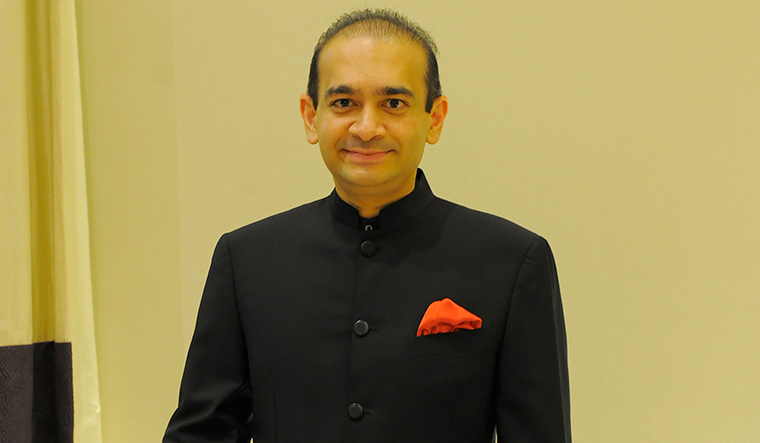Following the order by the Westminster Magistrates' Court to have fugitive diamantaire Nirav Modi extradited to India from the UK, the country’s Home Office has approved his handover.
According to an ANI report citing a CBI official, the UK Home Secretary has approved Nirav Modi’s extradition to India, where he will stand trial in connection with allegations that he cheated the Punjab National Bank of over Rs 13,000 crore in collusion with his uncle Mehul Choksi.
This is not the end of Nirav Modi’s legal avenues, however, as he may still approach a higher court seeking relief.
The decision follows a Westminster Magistrates' Court ruling by District Judge Sam Goozee in February, which concluded that Modi has a case to answer before the Indian courts and that the bars to extradition under UK law do not apply in his case.
Nirav Modi, 50, who remains behind bars at Wandsworth Prison in south-west London since his arrest over two years ago on 19 March 2019, has 14 days to apply for permission to appeal against the Home Secretary's order in the High Court in London.
On 25 February the District Judge gave judgment in the extradition case of Nirav Modi. The extradition order was signed on April 15, a Home Office spokesperson said.
Nirav Modi may now seek leave to appeal against both the decisions, that of the District Judge and of the Home Secretary.
Earlier, his petition claiming he would not receive a fair trial in India and that he might be considered a suicide risk had been struck down by the Westminster Court, which felt there was sufficient evidence against him for a corruption charge.
Modi faces a CBI case related to large-scale fraud against PnB through fraudulent obtaining of loan agreements, and an Enforcement Directorate (ED) case over laundering of the proceeds.
Any appeal, if sought and granted, will be heard at the Administrative Division of the High Court in London.
There is also a possibility to appeal to the UK Supreme Court but this is only possible if the High Court certifies that the appeal involves a point of law of general public importance, and either the High Court or the Supreme Court gives leave for the appeal to be made.
Nirav Modi's legal team did not immediately confirm if he intends to appeal in the High Court. He will, meanwhile, remain behind bars at Wandsworth Prison on judicial remand until the next stage in the legal process.
The CBI had registered the case on January 31, 2018 against Modi, Choksi and others including then officials of PNB on a complaint from the Bank on the allegations that the accused had hatched a criminal conspiracy amongst themselves to defraud the public sector Bank by fraudulently issuing Letters of Undertaking.
Letters of Undertaking are a guarantee that a bank gives to banks abroad where its client approaches for credit.
Modi escaped from India on January 1, 2018 before registration of case in CBI. A non bailable arrest warrant was issued by the trial court against him followed by a red corner notice in June 2018 by Interpol. He was arrested in the UK on March 19, 2019, on an extradition warrant executed by Scotland Yard and his repeated applications for bail were rejected by the Westminster Magistrates' Court and High Court, London.
Very few Indians have been extradited from the UK to India since the signing of an extradition treaty between the two countries in 1992. Proceedings to extradite fugitive businessman Vijay Mallya are still ongoing, with the Centre telling the Supreme Court in January it was taking all efforts to extradite him. Like Nirav Modi, Mallya was picked up by Scotland Yard on an extradition warrant in 2017—but remains out on bail now. A pending legal issue was cited as the reason he could not be extradited.
However, recently, a drug kingpin accused of running an international supply chain of the “Meow Meow” drug was successfully extradited from the UK, with full coronavirus precautions.
With inputs from PTI




